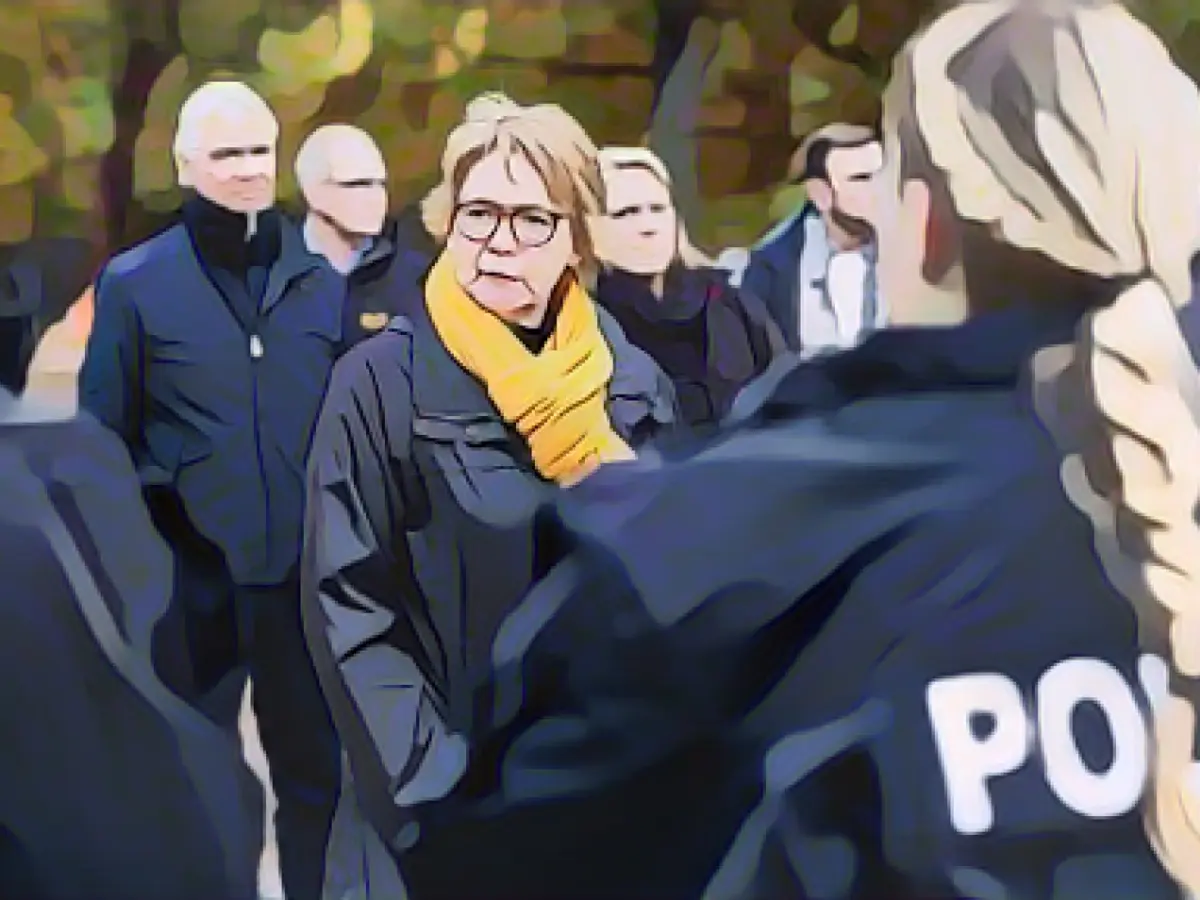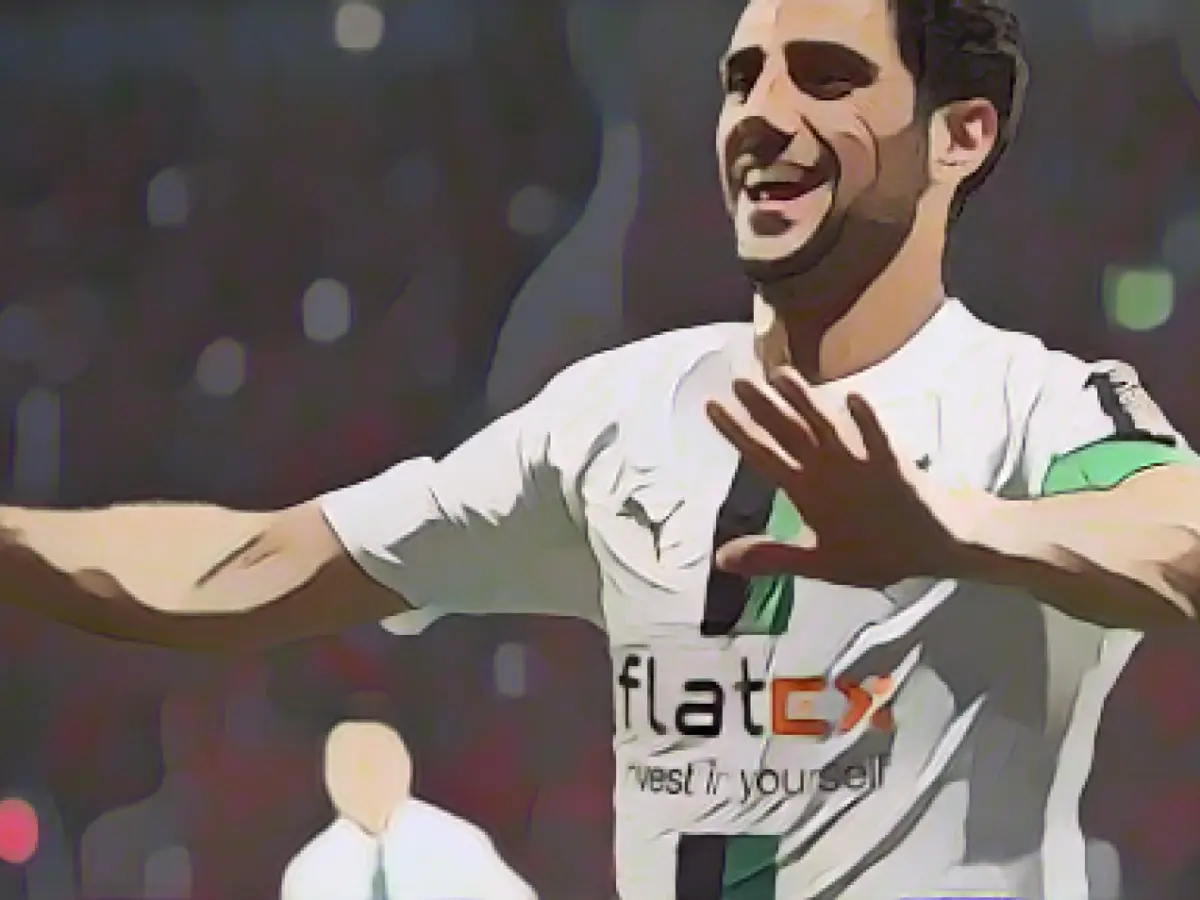Soccer's Troubling Trend of Stadium Violence: Germany's Fight Against Chaos and Pyrotechnics
The tumultuous scenes in soccer stadiums, particularly in Germany, have forced politicians and club executives to take a firm stance against the disorderly conduct and excessive use of pyrotechnics. Lower Saxony's Interior Minister Daniela Behrens (SPD) met with Hannover 96's Martin Kind and Eintracht Braunschweig's Nicole Kumpis to tackle the mounting issue of stadium chaos.
"Enough is enough," declared Behrens, echoing the sentiments of German officials and soccer enthusiasts. "We all need to work together to quell this chaos," she insisted, emphasizing the need for collective action.
Kind stood in agreeance, acknowledging the clubs' inadequate progress in addressing the issue over the years. They vowed to collaborate in confronting violent offenders.
Security enhancements feature prominently in proposed resolutions, focusing on better admission controls and infrastructure. Key areas to enhance include modernizing camera technology, which often falls short in many stadiums. In response, the Lower Saxony police union called for more video surveillance and training for security personnel.
As interior ministers discuss recent soccer-related violence in Berlin, security representatives hope for strict measures against aggressive ultra-groups before the European Championship in Germany. However, some fan representatives argue that the police's harsh tactics may exacerbate rather than deescalate the problems.
Derbies between Hannover 96 and Eintracht Braunschweig have attracted headlines due to recurring incidents of pyrotechnic misuse. In the most recent derby, damages were estimated at around 150,000 euros, and a police officer sustained serious injuries. Both clubs' struggles to control individual fans' actions have left them financially strained, with Hannover fined 600,000 euros and Braunschweig incurring 300,000 euros in costs.
To tackle stadium chaos, experts suggest incorporating the following strategies:
- Stronger Collaboration 2.Create alliances between clubs and law enforcement to identify and thwart potential threats, providing instant support during matches.
- Allocate resources to information-sharing platforms and intelligence sources to stay informed on security threats related to pyrotechnics and violence.
- Advanced Surveillance and Technology
- Upgrade surveillance systems, featuring smart security cameras and analysis software, to monitor crowds and potential hazards.
- Modernize infrastructure, such as fire suppression systems and stadium structures, to withstand pyrotechnic use and minimize damage.
- Improved Security Training and Education
- Incorporate substantial training programs for security personnel, better equipping them to handle volatile situations effectively.
- Unveil community outreach initiatives to educate fans about the dangers of pyrotechnics and promote respectful behaviors.
- Legislative and Policy Changes
- Implement stricter punishments for individuals who misuse pyrotechnics in stadiums, targeting both direct and indirect acts of violence.
- Collaborate with law enforcement to enforce existing regulations against pyrotechnic offenses and violent incidents within stadiums.
- Community Engagement and Partnerships
- Join forces with anti-violence organizations to provide resources and support for both fans and security personnel.
- Engage with local communities to cultivate a shared sense of responsibility for maintaining order and fostering a secure stadium environment.
Implementing these strategies and fostering a unified approach between clubs, politicians, and law enforcement can create safer, more enjoyable soccer stadium experiences. These changes pave the way to a future where games offer not just exhilaration, but also a secure space for all fans.
Enrichment Data:
German soccer stadium chaos mitigation strategies showcase a multi-faceted approach combining regulatory measures and collaborative efforts between authorities and clubs. Here are some key strategies and associations:
- Regulatory Measures
- Anti-Violence Commission: In Spain, the Anti-Violence Commission has imposed fines and stadium bans on fans responsible for incidents, such as the six fans fined 3,001 euros and banned for six months for throwing objects during an Atletico Madrid-Real Madrid match[1].
- High-Risk Matches: The Anti-Violence Commission classifies certain matches as high-risk, implying augmented security measures and admissions control to prevent incidents[1].
- Enhanced Security Measures
- Access Control: Real Sociedad faced a 3,001 euro fine for failure in access control during the Champions League match against Ajax, due to unauthorized entry of two megaphones[1].
- Stadium Surveillance: Atlético de Madrid's stadium surveillance help in identifying offenders and preventing incidents[1].
- Educational Initiatives
- LALIGA VS HATE Campaign: The Spanish LALIGA launched a campaign against hate in soccer stadiums, featuring educational messaging, reporting tools, and stadium activations to promote tolerance and respect[4].
While these strategies mainly address Spanish football, they mirror broader tendencies in addressing stadium violence in Europe, including Germany. German authorities have also taken steps to tackle extremism and terrorism, sometimes manifesting in violent behavior during sports events. However, specific measures for pyrotechnic misuse in German soccer stadiums are not extensively discussed in the provided sources.
In summary, addressing stadium chaos in German soccer stadiums requires a combination of regulatory measures, improved security protocols, educational initiatives, and collaborative efforts between authorities and clubs. These measures aim to construct a safe and respectful environment for fans to enjoy the game.








